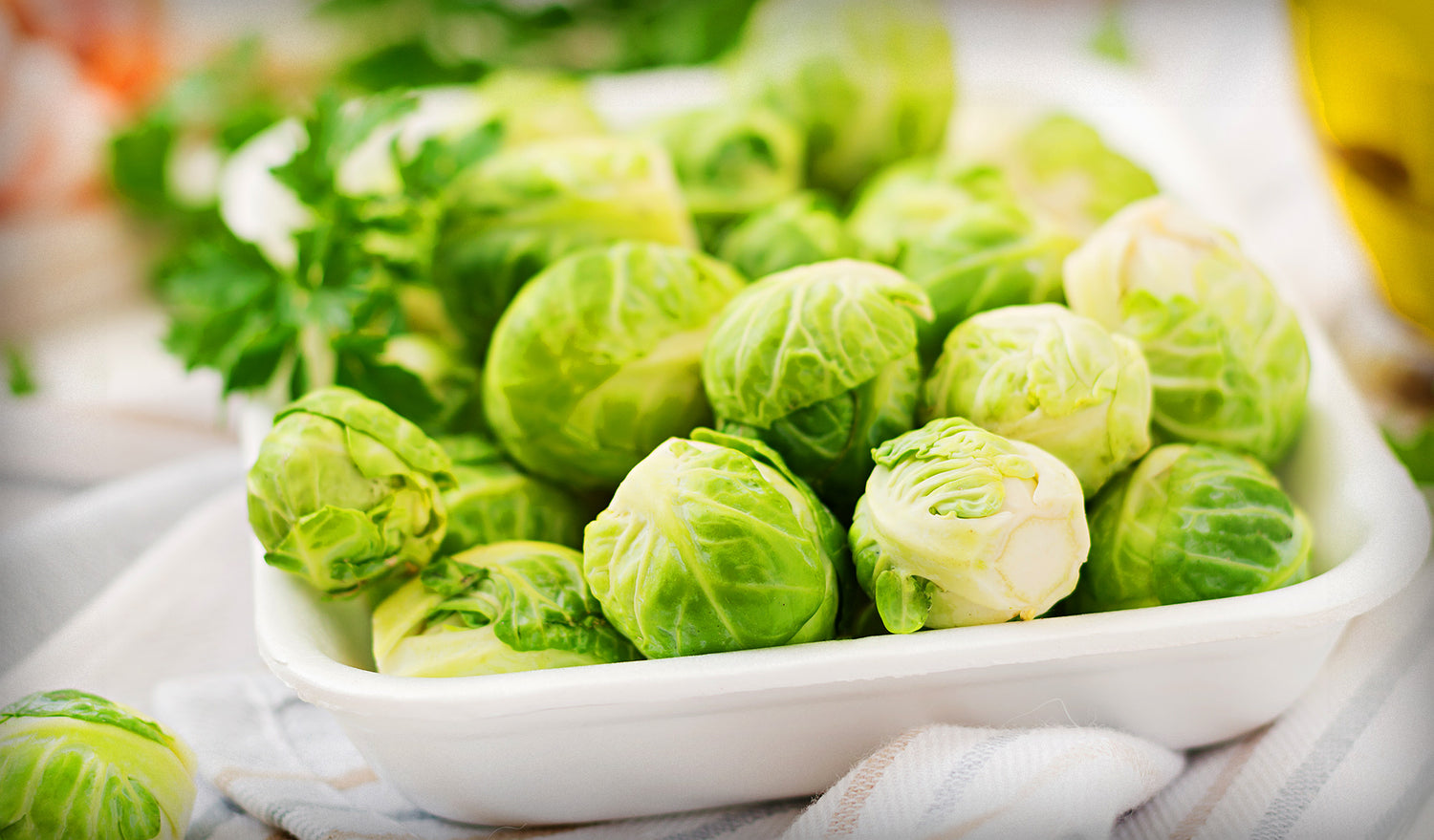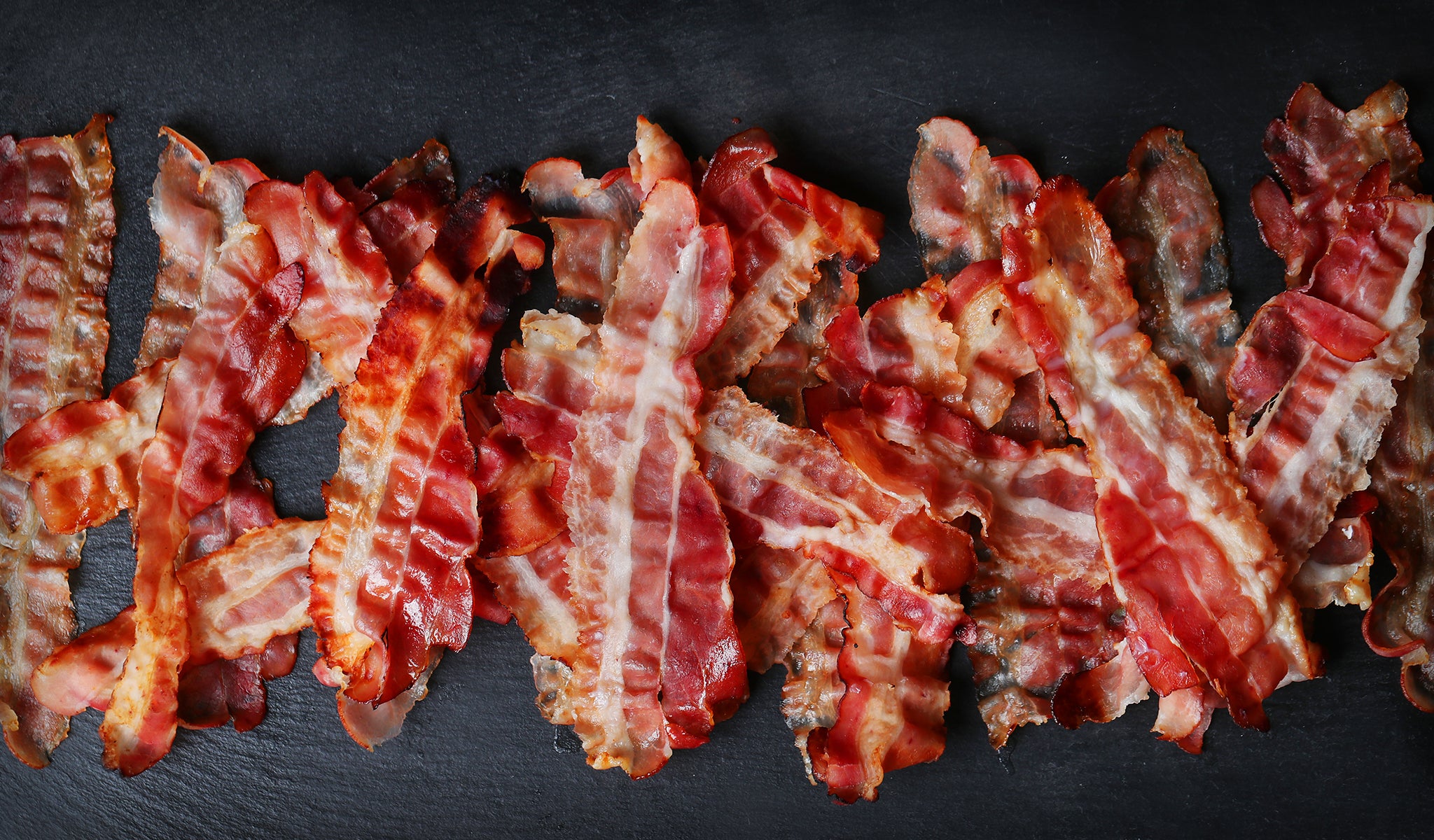SOMETIMES IT'S GOOD TO BE FULL OF BS...
Like broccoli, Brussels sprouts developed from the wild cabbage. They resemble miniature cabbages, with a diameter of about 1 inch. Brussels sprouts (Brassica oleracea) are vegetables in the cruciferous family. Cruciferous vegetables, sometimes also called Brassica vegetables, includes such foods as broccoli, cauliflower, cabbage, kale, bok choy, and collard greens.
Cruciferous vegetables are cool weather vegetables. This means they’re usually in season late fall through early spring. Brussels sprouts grow in bunches of 20 to 40 on the stems of plants that grow as high as 3 feet tall. Brussels sprouts are typically sage green in color, although some varieties feature a red hue. They are often times sold separately but can sometimes be found in stores still attached to the stem.
Brussels sprouts are very similar in nutritional quality to broccoli.
Help Protect Against Cancer with Antioxidants and Phytochemicals
- Sulfur-containing compounds called sulforaphane are what give cruciferous veggies their cancer-fighting abilities, in addition to their distinct smell and sometimes bitter taste.
Fight Inflammation and Heart Disease
- Cruciferous vegetables can significantly reduce the risk for cardiovascular disease-related mortality. The studies show high levels of inflammation are directly correlated with an increased risk for heart disease, stroke, diabetes, and neurodegenerative disorders.
Digestive Health
- Glucosinolates found in Brussels sprouts can help protect the lining of the stomach/digestive tract. This helps reduce the chances of developing Leaky Gut Syndrome or other digestive disorders. At the same time, sulforaphane found in Brussels sprouts facilitates in the body’s important detoxification process. These veggies can help with digestion by preventing bacterial overgrowth from occurring in the gut microflora.
Immune Booster
- Who doesn't need a little immune boosting? Vitamin C is essential for a strong immune system, vitamin C’s antioxidants keep your immunity strong against bacteria, viruses, toxins, and other harmful invaders that can cause disease and illness. Raw consumption will reap maximum benefits of Vitamin C.
Keeping the Bones Strong
- Brussels sprouts are one of the top Vitamin K foods around. We need this for BONE STRENGTH. Vitamin K also helps with blood clotting, bone calcification, and turning off inflammation in the body
Basically...Brussels sprouts are another super food that we need to incorporate into our diet. There are so many ways to make this happen, all you have to do is MAKE IT HAPPEN.
FORAGING, ok shopping:
Whether you are in the store, local farmers market, or in your garden you need to know what to look for when foraging for Brussels sprouts. They should be firm and fresh in appearance, with a good green color. Avoid dull, wilted, or yellow Brussels sprouts. If they are sold individually, choose those of equal size to ensure that they will cook evenly. Brussels sprouts are available year-round, but again their peak growing period is fall to early spring. Remember cool weather veggies.
STORAGE:
Keep unwashed and untrimmed Brussels sprouts in a perforated plastic bag in the vegetable compartment of the refrigerator. They can be kept for three to four days. Cooked Brussels sprouts will keep for three days refrigerated. If you want to freeze them, blanch them first for 3-5 minutes. They will keep in the freezer for up to one year.
from: The Encyclopedia of Healing Food & Dr. Axe
SARA'S FAVORITES:
My two favorite ways to prepare Brussels sprouts are stir frying and fermenting.
I will buy fresh, firm sprouts, trim the stems and outer leaves, then halve and slice the whole lot. I will fill a quart jar, cover with brine, glass weight, and fermenting lid and set aside. Then any remaining chopped sprouts go into a pan with a dollop of bacon grease or duck fat, a little garlic and some salt, then stir until cooked to desired doneness. They are a great side for anything from eggs to hamburger to a can of sardines. The same for the fermented sprouts, after about a month or two. Try adding various herbs to either the fermented or the fried to add even more nutrients and minerals 😊
~ Sara Pingel FNTP
RUTHERFORD FAVORITES:
I'm pretty sure it's safe to say that all Brussels sprout recipes are loved in the Rutherford home. We haven't come across one yet that we didn't like.
I want to share that looking for a recipe may be one of my favorite parts of the process.
Here are some things to think about when looking at a recipe..
- Does it look appetizing i.e. is your mouth already watering in anticipation?
- Does it fit your skill level? I/we consider ourselves pretty accomplished cooks, knowing our way around the kitchen. Seriously though, there are some recipes out there that are just ridiculous.
- Do you have the equipment needed for the chosen recipe?
- Do you have the correct ingredients?
If you are like us, we rifle through many recipes and create one on the fly, substituting ingredients when necessary. Sometimes/most times it works out, but sometimes (not many) things go wrong. This is how we learn what works and what doesn't. We also have created some amazing dishes this way… So don't be afraid to step out of your comfort zone and COOK!
I find inspiration for dishes in so many places:
- YOU, our TRIBE - you guys and gals post so many amazing pictures of what you're eating, preparing, using different types of equipment… KEEP IT UP
- Pinterest - you can type in your ingredients (maybe the top 3) and it will instantly give you ideas. Some good/some not so good.. but it's a starting point.
- Internet - just search Brussels Sprouts Recipes - you will be amazed!



